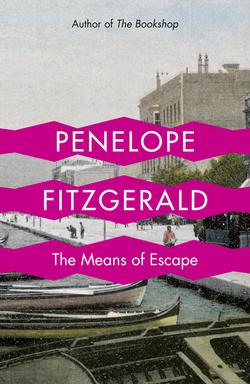The Means of Escape

Реклама. ООО «ЛитРес», ИНН: 7719571260.
Отрывок из книги
When Penelope Fitzgerald unexpectedly won the Booker Prize with Offshore, in 1979, at the age of sixty-three, she said to her friends: ‘I knew I was an outsider.’ The people she wrote about in her novels and biographies were outsiders, too: misfits, romantic artists, hopeful failures, misunderstood lovers, orphans and oddities. She was drawn to unsettled characters who lived on the edges. She wrote about the vulnerable and the unprivileged, children, women trying to cope on their own, gentle, muddled, unsuccessful men. Her view of the world was that it divided into ‘exterminators’ and ‘exterminatees’. She would say: ‘I am drawn to people who seem to have been born defeated or even profoundly lost.’ She was a humorous writer with a tragic sense of life.
Outsiders in literature were close to her heart, too. She was fond of underrated, idiosyncratic writers with distinctive voices, like the novelist J. L. Carr, or Harold Monro of the Poetry Bookshop, or the remarkable and tragic poet Charlotte Mew. The publisher Virago’s enterprise of bringing neglected women writers back to life appealed to her, and under their imprint she championed the nineteenth-century novelist Margaret Oliphant. She enjoyed eccentrics like Stevie Smith. She liked writers, and people, who stood at an odd angle to the world. The child of an unusual, literary, middle-class English family, she inherited the Evangelical principles of her bishop grandfathers and the qualities of her Knox father and uncles: integrity, austerity, understatement, brilliance and a laconic, wry sense of humour.
.....
‘Ah, it’s a sad thing for a performer to be interrupted. The concentration of the mind is gone. “When the lamp is shattered …”’
‘That is not what I felt at all,’ said Alice.
.....